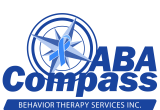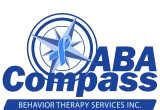If you have a child with autism, you may be wondering about the different types of assessments that are available. Which one is right for your child? In this post, we will discuss the three most common assessments: the diagnostic assessment, the functional assessment, and the adaptive behaviour assessment. We will also talk about what each one entails and how it can help your child get the treatment they need.
Diagnostic Assessments
 The diagnostic assessment is the most common type of assessment for children with autism. This assessment is usually conducted by a team of specialists who will observe your child and ask you questions about their development and behaviour. The purpose of this assessment is to determine whether or not your child meets the criteria for an autism diagnosis.
The diagnostic assessment is the most common type of assessment for children with autism. This assessment is usually conducted by a team of specialists who will observe your child and ask you questions about their development and behaviour. The purpose of this assessment is to determine whether or not your child meets the criteria for an autism diagnosis.
Functional Assessments
Another typical type of examination for children with autism is the functional assessment. A team of specialists will observe your child in their normal environment and collect information about their behaviour during this examination. The goal of this examination is to determine which abilities your child needs to improve in order to operate more independently.
Adaptive Behaviour Assessment
The third sort of assessment for children with autism is the adaptive behaviour assessment. A team of specialists will observe your child in their normal environment and collect information about their behaviour during this examination. The primary purpose of this examination is to identify the areas in which your child requires assistance in order to adapt to their surroundings.
VB-MAPP, ABLLS_R and AFLS Assessments
 The VB-MAPP, ABLLS_R, and AFLS are all assessments used to evaluate individuals with autism spectrum disorder (ASD) and other developmental disabilities. Each assessment has its own strengths and weaknesses, so it is important to choose the right assessment for each individual child. The VB-MAPP is a visual assessment that uses pictures and symbols to evaluate a child’s understanding of language, including receptive and expressive skills. The ABLLS_R is an assessment that uses a more traditional testing format to evaluate a child’s acquisition of basic skills, such as communication, daily living skills, and academics. The AFLS is an assessment that focuses on assessing a child’s functional skills, such as play and leisure skills, self-care skills, and motor skills. All three of these assessments can be useful in determining a child’s strengths and weaknesses and designing an individualized treatment plan.
The VB-MAPP, ABLLS_R, and AFLS are all assessments used to evaluate individuals with autism spectrum disorder (ASD) and other developmental disabilities. Each assessment has its own strengths and weaknesses, so it is important to choose the right assessment for each individual child. The VB-MAPP is a visual assessment that uses pictures and symbols to evaluate a child’s understanding of language, including receptive and expressive skills. The ABLLS_R is an assessment that uses a more traditional testing format to evaluate a child’s acquisition of basic skills, such as communication, daily living skills, and academics. The AFLS is an assessment that focuses on assessing a child’s functional skills, such as play and leisure skills, self-care skills, and motor skills. All three of these assessments can be useful in determining a child’s strengths and weaknesses and designing an individualized treatment plan.
All of these assessments are important in helping your child get the treatment they need. If you have any questions about which assessment is right for your child, be sure to speak with your doctor or a member of your child’s care team. ABA Compass is happy to answer any questions about assessments for children with autism. Contact us to learn more or get an assessment for your child.



